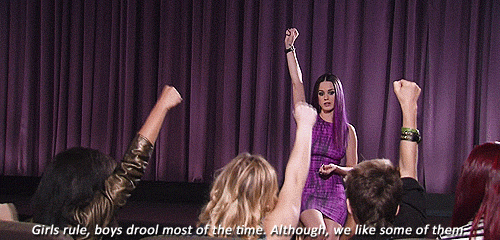Study: Girls ‘Significantly’ Better Than Boys At Reading, Writing

QUEENSLAND, Australia — Maybe they’re born with it. In the never-ending battle of the sexes, its the girls who prove victorious when it comes to grade-school English class skills. A new study finds that girls perform significantly better than boys in the U.S. on standardized tests of reading and writing abilities.
Researchers from Griffith University in Australia say the results are clear after reviewing the scores of more than 3.9 million American students from a 27-year span. Data was gathered from the the National Assessment of Educational Progress, which collected standardized test scores from students in the fourth, eighth, and twelfth grades.
The authors found that girls fared markedly better in both reading and writing in the fourth grade, only to see the gap widen in eighth and twelfth grades, especially when it came to writing.
“The common thinking is that boys and girls in grade school start with the same cognitive ability, but this research suggests otherwise,” says lead author David Reilly, a doctoral student at Griffith, in a release by the American Psychological Association. “Our research found that girls generally exhibit better reading and writing ability than boys as early as the fourth grade.”
Reilly and his team believe the surprising findings could be a result of boys being more likely to be diagnosed with a learning disability. Similarly, behavioral problems typically seen more frequently among boys may also make them more prone to delays, which Reilly says could even signal a neurological condition.
The authors also suggest the peer pressure boys face to follow masculine norms could contribute, making reading less of a priority for some.
“The magnitude of the writing gender gap was really quite surprising, as was the fact that there was no evidence for a decline in the gap for reading and writing over time. Many boys are highly proficient in reading, and yet really struggle when it comes to writing tasks,” Reilly argues in a university news release.
Other research has shown that girls use both brain hemispheres for reading and writing, while boys typically rely on just one.
“Reading and writing sets the stage for later schooling. While we’ve concentrated on basic literacy, the demands on students for writing grow stronger as they progress through education,” adds Reilly. “In particular, it’s crucial for high school and college entry. Each year, more women than men apply for college entry, and more women than men complete their college degrees. It has a cascading effect on students, either up or down.”
Reilly says curriculum needn’t be any different for either gender, but schools should consider pushing expressive writing exercises on boys earlier. Teachers could also work to make writing as big of a priority as reading and other subjects, such as the “STEM” (science, technology, engineering, and mathematics) courses that have gained greater attention in recent years.
“For educational practice, I believe this study shows the need for a greater focus on writing beginning in primary continuing throughout high school, but in an ever-crowded curriculum that is focusing more on STEM, it highlights the increased need for further work,” he concludes.
The full study was published September 20, 2018 in the journal American Psychologist.
Study: Girls 'Significantly' Better Than Boys At Reading, Writing - Study Finds






